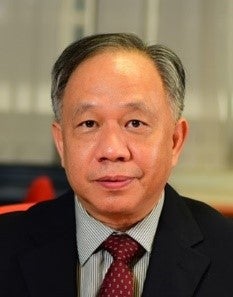

Professor Ming Wah Wong
Faculty & Department
Education
Doctor of Philosophy, Australian National University, Australia
Bachelor of Science (Chemistry) Hons Class 2A, University of Newcastle, Australia
Bachelor of Mathematics, University of Newcastle, Australia
Bio
Prof. Richard Wong received his B.Sc. and B.Math. from University of Newcastle (1984), and Ph.D. in Computational Chemistry from Australian National University under the supervision of Prof. Leo Radom (1988). He then carried out his postdoctoral research in IBM Kingston, USA (1989) and Yale University (1990-1991). He returned to Australia to took up the prestigious Australian Research Fellowship, hosted at University of Queensland (1992-1997). He joined the National University of Singapore (NUS) and started his independent career in April 1997 and rose through the ranks to become a Full Professor in January 2019. He was the recipient of NUS Outstanding Researcher (2001) and Fukui Award by Asia-Pacific Association of Theoretical & Computational Chemists (2019). He is an Editorial Advisory Board Member for Advance Theory & Simulation, Asian Journal of Organic Chemistry, Molecules and Journal of Analytical & Pyrolysis. Prof Wong was the Head of Chemistry Department from 2015-2021. Currently, he is the Co-Director of Applied Materials-NUS Advance Materials Corporate Lab. He has published 243 papers and received over 25,000 citations (Google scholar). His research involves application of computational quantum chemistry and molecular dynamics stimulation and machine learning modelling to problems of structure, mechanism and reactivity in chemistry, biological chemistry and materials.
Contact Information
My research group carries out research with the use of state-of-the-art computational quantum chemistry methods, molecular dynamics simulations and machine learning algorithms to solve problems in chemistry, biological chemistry and materials. We use computer calculations to investigate the structures and properties of molecules and the mechanism of reactions in which they are involved. Our focus is on understanding fundamental properties of chemical bonding and electronic structure in order to facilitate design of new chemistry and new materials. Current research interests involve the following areas:
- Computational quantum chemistry
- Organocatalysis, stereoselectivity
- Non-covalent intermolecular interactions, particularly halogen bonding
- Supramolecular chemistry and molecular sensors
- Hydrogen storage materials
- Excited properties of dyes
- Modeling of corrosion inhibitors
- Radical reactions in chemistry, antioxidant activity
- Heterogeneous and homogeneous catalytic reactions involving CO2
- Molecular modeling of biomolecules, computer aided drug design
- 2D materials for semiconductor application
- Cheminformatics, machine learning applications in chemistry
My Mentoring Style
How would you describe your mentoring style in terms of freedom given to your students?

Selecting Research Topics?
How do you guide your PhD students in selecting research topics?

Setbacks / Challenges
How do you handle setbacks or challenges faced by your PhD students?

Feedback
How do you give feedback on your students’ thesis drafts and progress?

Consultation Frequency
How often do you typically meet your PhD students one-on-one for consultation?

Research Group Meetings
How often do you typically hold lab meetings where your PhD students present their research work to the class?


